The finale cheval plein bet is actually a combination of the finale plein bet and the finale cheval bet.
It covers more numbers than the bets it takes its name from and also includes two bet types, where the other types include just one each.
How Does the Finale Cheval Plein Bet Work?
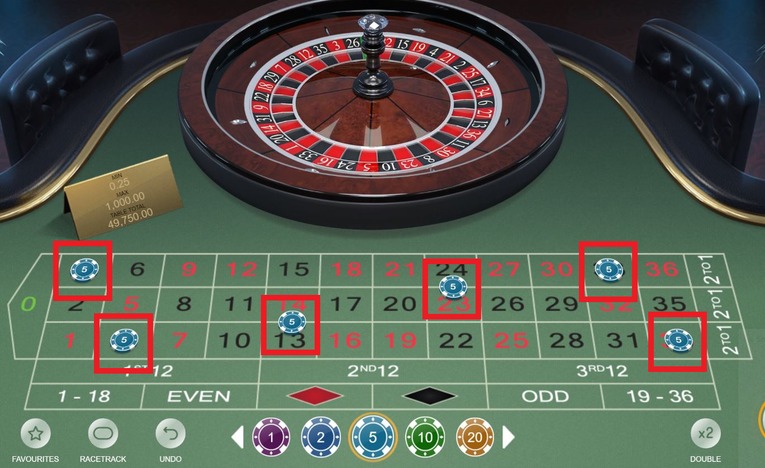
To make a finale cheval plein bet, you need to choose two single digit numbers that are consecutive, and then place bets on any number that ends in one of those single digit numbers.
For example, betting on 3 and 4 would mean covering numbers 3, 4, 13, 14, 23, 24, 33 and 34 as you can see in the example above.
What makes this slightly more interesting than the simpler finale plein bet we covered in a previous article, is that when those numbers are directly above or below each other on the betting board, you cover them with a split bet instead of a straight up.
Because of the way the board is laid out and the fact that the board only goes up to 36, finale cheval plein bets can cost different amounts to place and also cover either 6, 7 or 8 numbers in total.
Here are some different examples covering fewer numbers:
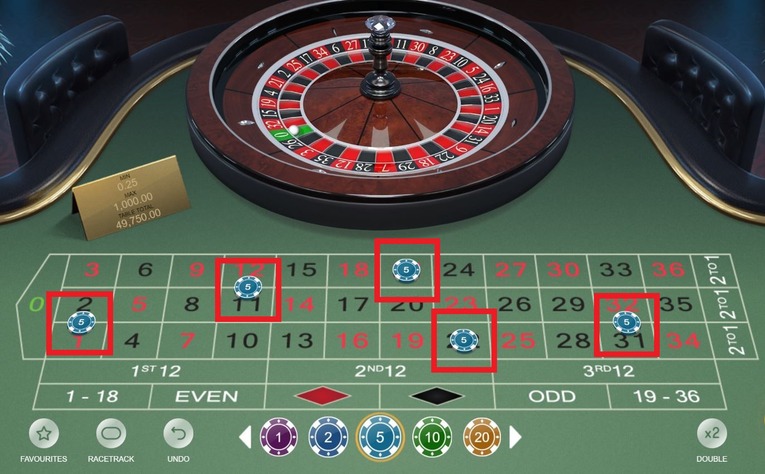
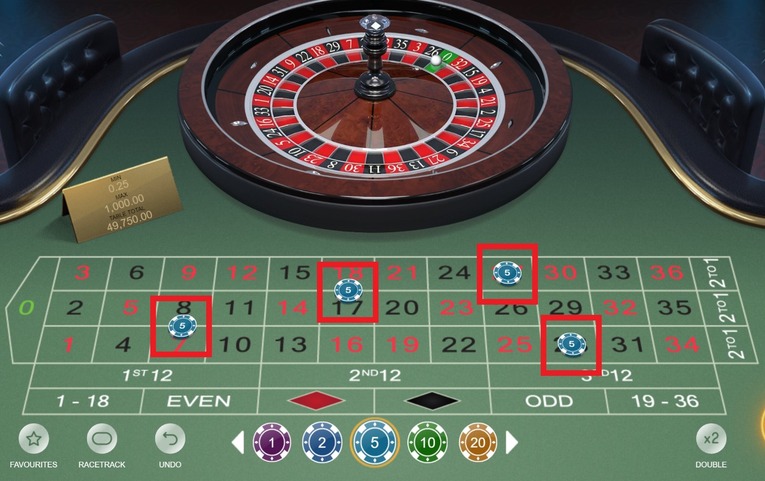
The different available options are as follows:
| Numbers Chosen | Numbers Covered |
|---|---|
| 0 and 1 | 0-1-10-11-20-21-30-31 |
| 1 and 2 | 1-2-11-12-21-22-31-32 |
| 2 and 3 | 2-3-12-13-22-23-32-33 |
| 3 and 4 | 3-4-13-14-23-24-33-34 |
| 4 and 5 | 4-5-14-15-24-25-34-35 |
| 5 and 6 | 5-6-15-16-25-26-35-36 |
| 6 and 7 | 6-7-16-17-26-27-36 |
| 7 and 8 | 7-8-17-18-27-28 |
| 8 and 9 | 8-9-18-19-28-29 |
You would place bets of equal amounts on all positions, so even though you might be placing a split bet along with straight up bets, those split bets would not have higher stakes even though the payout would be smaller if it won.
The finale cheval plein bet is not a way to boost your odds or improve your payouts, it is just a different way to cover the board, giving you between 16% and 21% coverage depending on the numbers you go for.
You can choose whichever numbers you like, but traditionally you would bet on the last two numbers that come up on the roulette wheel. So if the last two numbers that came up were 13 and 34, for instance, then the finale cheval plein bet would be on the numbers 3 and 4.
Why Do People Use the Finale Cheval Plein Bet?
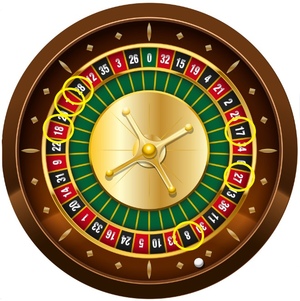 It’s not particularly well known amongst newer players, but the finale cheval plein bet is a popular bet among roulette players with more experience because it covers a larger spread of the table than the finale plein or finale cheval bets.
It’s not particularly well known amongst newer players, but the finale cheval plein bet is a popular bet among roulette players with more experience because it covers a larger spread of the table than the finale plein or finale cheval bets.
Other people might just use it because they have a couple of numbers they find lucky, or they like the way a particular set of numbers looks on the wheel; 7 and 8 for example create two little clusters opposite each other on the wheel which bodes well if the ball slows down in one of those areas.
If a player believes there is a pattern or bias in the way the ball is landing it can be a good way to swim with the tide too, although we must point out that gambler’s fallacy will be coming into play here – even if there was a wheel bias it would be to a specific number or area of the wheel, not to a spread of numbers ending in the same digit.
Odds of Winning a Finale Cheval Plein Bet and Payouts
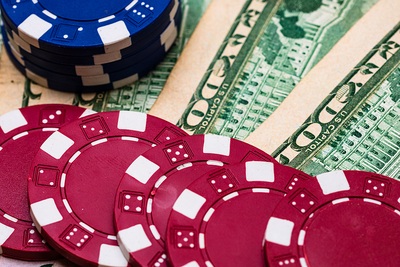 The odds of winning with a finale cheval plein bet depend on how many numbers you are betting on.
The odds of winning with a finale cheval plein bet depend on how many numbers you are betting on.
Since you are betting on either 6, 7 or 8 numbers in total the odds of winning are either 7 in 37 or 8 in 37. We mentioned broad percentages earlier but more specifically these work out as a 16.21%, 18.91% or a 21.62% chance of a hit respectively.
The payout for a finale cheval plein bet depends on which number hits and what sort of bet is covering that number. You will either have a straight up bet or a split bet on the winning number, so the payout will be 35:1 or 17:1.
Assuming you were placing £5 bets then, you would get back either £175 for a straight up win, or £85 for a split bet win.
Of course, you also need to account for the bets that lost to work out your real returns, and depending on your numbers this will have either been 4 bets, 5 bets or 6 bets.
- 4 x £5 = £20
- 5 x £5 = £25
- 6 x £5 = £30
So the worst you will end up with is a split bet win with 6 bets placed, costing £30 but returning £85 to give you £55 in your pocket; and the best is a straight up bet win with 4 bets placed, costing £20 but returning £175 to give you £155 in your pocket.
